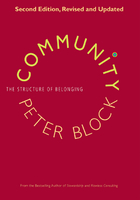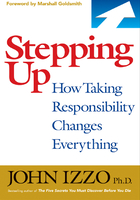2.How Do We Go About Changing?
FIRST, GO OUTSIDE
If you needed to learn a new speech sound to improve your clarity, I would direct your tongue to the right place and posture in your mouth to produce it correctly. Then I'd provide appropriate practice and carry-over activities to keep the sound securely in your articulation repertoire.
If you needed to learn how to give a concise, fluent oral report, I would direct your mind to identify the point of your remarks and the logical structure to introduce and support this idea.
If you needed to develop comfortable and engaging small talk, I would direct your feet to the sunny side of the street. I would get you out of your head and into the spaces where you find other people. For many of you, those other people are on the other side of a wall called social anxiety.
Social anxiety is the fear and stress of being negatively judged and evaluated. It is the brick wall that has kept you from reaching out to others, and it will not fall down on its own. Only direct cognitive-behavioral efforts on your part can break down this wall by changing the brain and its habit patterns. For our purposes, the most effective therapy tool is small talk.
Small talk is the cure for social anxiety.
I know, I know, it's a catch-22!
People invest a lot of time in talking about their social anxiety problems. They tell me their tales of fear, shame, and failure while I wait for that part in our conversation where we discuss what we're going to do to change the situation. I offer three approaches for achieving conversation comfort:
1.Baby steps. We creep up on this situation in behavioral itty-bits.
2.We go for the big attitude change that recasts the whole experience in a new and positive light.
3.Both 1 and 2.
You might be asking yourself, “Can I really do this?” Of course you can!
First of all, let's get you in the right frame of mind, the one that assumes, “Yes, I can do this.” Think about people you know who are socially comfortable, who have the ease you admire. Visualize them as they talk and mix with others, then imagine yourself doing the same thing. If you can reimagine this scenario as you pass through various situations in a day, it becomes part of your consciousness and is easier to access when the time is right. What I'm asking you to do is invest some energy in remembering your goal, purpose, and commitment to the future.
Now, some tough love. Step back and take a look at the crowd you hang out with. How do they talk? What is their social behavior like? Is this what you want for your life?
It has been said that you are the average of the five people you spend the most time with. Your accent, vocabulary, and social behavior will reflect this group. Perhaps you want to think about adding some new friends, people who behave the way you would like to. Consider seeking out new contacts and extending your social reach by visiting social clubs, civic organizations, and activity and discussion groups. Passive exposure doesn't do the trick. You have probably already been exposed to all kinds of people and it hasn't made a dent in your social skill and polish. Purposeful and mindful interaction will.
At the same time, I urge you to consider your own value to others. Can you be helpful, supportive, and genuinely interested in them? In order to earn the privilege of being with people you choose, you must have something of benefit to offer them. Here again, more energy from you is required. You need to be interested and interesting (more on this in Chapters 8 through 12).
Pay attention. Think about it. Keep seeing yourself being the person you'd like to be.
Comfortable small talk is a learn-by-doing activity.
You can start now by putting the spotlight of attention on yourself as an outgoing, genial person. But now you're asking, “How long is this going to take?”
I have two answers:
? It depends. Many factors come into play in the human learning of verbal skills.
? How much do you want this skill?
This one has a simple resolution. If you really want this, you can get it lickety-split. So can you see yourself as capable of developing these skills? And are you willing to make the effort to achieve fluency?
If you said yes, you are exactly the person I wrote this book for. If you said no, please give this book to someone who can say yes.
THE ANCIENT HISTORY OF SMALL TALK
I'll bet you didn't know that there has been a lively market in books and manuals about social conversation going back over 500 years. What is striking is how little the advice has changed over the centuries, suggesting there really are dos and don'ts we are each expected to follow with limited variation. We can even go back more than 2,000 years ago for basic rules of small talk by Cicero, the Roman orator and philosopher, from his treatise On Duties:
? Speak clearly.
? Speak easily but not too much, especially when others want their turn.
? Do not interrupt.
? Be courteous.
? Deal seriously with serious matters and gracefully with lighter ones.
? Never criticize people behind their backs.
? Stick to subjects of general interest.
? Do not talk about yourself.
? Above all, never lose your temper.
You can't argue with this list, can you? Now let's add the contribution of the great Dale Carnegie, king of the self-help book, from his How to Win Friends and Influence People (1936):
? Become genuinely interested in other people.
? Smile.
? Remember people's names.
? Be a good listener.
? Talk in terms of the other person's interests.
? Make the other person feel important—and do it sincerely.
That's pretty much it. So then you ask, “Okay, I know the rules. I'm done, right?” Hmm, probably not. If a list of desiderata were all it took to change behavior, there would be no overweight people. Clearly, behavior change involves a lot more than a bunch of rules to follow.
There is a sequence of steps that facilitate real communication behavior change:
1.Awareness of conversational style and identifying what needs to be changed
2.Discovering what's in it for you
3.Systematic habit replacement
These steps characterize most learning in communication skills. Let's apply them to social conversation.
GETTING ACQUAINTED WITH YOUR CONVERSATIONAL STYLE
If you have a way of getting outside of yourself, you'd be wise to take it. That is because people do not have a clue about their personal impact on others.
Gentle feedback from a loving friend is best, of course. Lacking that option—as many do—if you really want to find out how you behave in a real-time conversation, a recording will tell you a lot. Understanding that the particular situation and individuals involved will direct the interaction to some extent, you still can learn some useful information if you just eavesdrop on yourself. As you listen, I'd recommend asking yourself the following questions:
Is there an easy back-and-forth or is somebody hogging the conversation?
Do you hear yourself interrupting very much?
Is your voice easy or hard to hear? Soft? Fast?
Are you talking about yourself, the other person, or some other topic?
Do you sound harsh or unpleasant in any way? Sarcastic? Know-it-all?
Do you raise your voice and override someone's attempt to join in?
Do you answer in monosyllables?
Do you hear a lot of “uh-huh,” “yeah,” or other empty language when you could have offered substantive content?
Do you catch yourself using generalities when you should use specifics?
Do you laugh like a donkey?
Now, do I really believe you will do this? No, I do not. I have had one—ONE—person who actually took on the challenge and even wrote me a report on what she learned about herself. It is such a curious thing: We all look at ourselves in mirrors multiple times a day. But listen to ourselves? Not so much. We evolved alongside standing bodies of water, so we had a way of seeing ourselves reflectively from early in our evolution. We developed with our visual image available to us. But hearing ourselves? Not until the middle of the twentieth century did we have tape recording devices available to the average person.
So maybe you won't make a recording of yourself to play back and analyze. It's still a good practice to consider the questions above as you converse with others to see if anything stands out to you that you can easily change.
What's in It for You?
Ask me to predict your success in changing your communication behavior and I'll ask, “How badly do you want it? As long as you continue to keep your goal and your commitment to the future a lively presence in your mind, you will fuel your drive to change.
Nothing beats motivation—unless it's persistence!
Habit Replacement
In this corner, weighing 800 pounds, the reigning champion of your social life: Your. Own. Social. Habits! And in this corner, wearing yellow trunks, the 115-pound contender: Your. Speech. Improvement. Goals!
If you're going to do this thing, you've got to get real. Habits do not go down easy. Blink and they're all over you. Lose your focus and you're done. You know this is true because you've gone through it so many times.
And to habit, let's add anxiety. Anxiety will make you do what you have always done before. Count on it. The blooming, buzzing confusion of a new social gathering will absorb you and naturally bring out all your old habits. But if you're aware of what's happening, you can fight it. You can connect with the new habits you want to focus on and find an opportunity to try them. Your motivation and focus will come into play—slowly and perhaps poorly at first—but persistence will always win. A quote attributed to Calvin Coolidge says:
Nothing in this world can take the place of persistence. Talent will not; nothing is more common than unsuccessful people with talent. Genius will not; unrewarded genius is almost a proverb. Education will not; the world is full of educated derelicts. Persistence and determination alone are omnipotent.
The Secret of It All
Want to know a secret shortcut? If you can change your attitude toward other people, it will have a major impact on your communication behavior and, subsequently, your impact on others. Here I will borrow from the foreword to Leil Lowndes's book How to Talk to Anyone:
There are two kinds of people in this life:
Those who walk into a room and say, “Well, here I am!”
And those who walk in and say, “Ahh, there you are.”
To the degree that you are being self-conscious, you are not investing in the other person in the conversation (more on this in Chapter 10). Conversely, the more you are open to what the other human being is saying, the less your attention is captured by your own ego.
There it is. That's the secret. Be willing to
Admire your conversation partner and
feel them open to you.
This is the easy way to charm. People are warmed and flattered by the attention and admiration of a listener. And while we're in the neighborhood, it is also the secret to comfortable public speaking.
Were I to counsel you in preparing a speech, I would have you invest your time in thorough knowledge of your audience and how to meet their interests and needs. You don't have this identified audience in a small-talk situation, especially with strangers. But it's still a knowable audience, isn't it? That's the point of the conversation in the first place.
Images
Social communication learning is laid down behaviorally and can only be modified through behavior, otherwise known as systematic and mindful practice. Your biggest enemy here will be you: clinging to your old habits and trying to understand the issue with an intellectual approach. As a matter of fact, your whole being—that 800-pound gorilla we were talking about—will fight the habit changes that you think you want. This is true of all communication change, by the way. We have an emotional immune system that panics when we feel uncertain and vulnerable, the same feelings that arise when we are trying something new.
Don't let that 800-pound bully throw sand in your face! Let's work it out! Are you ready?














